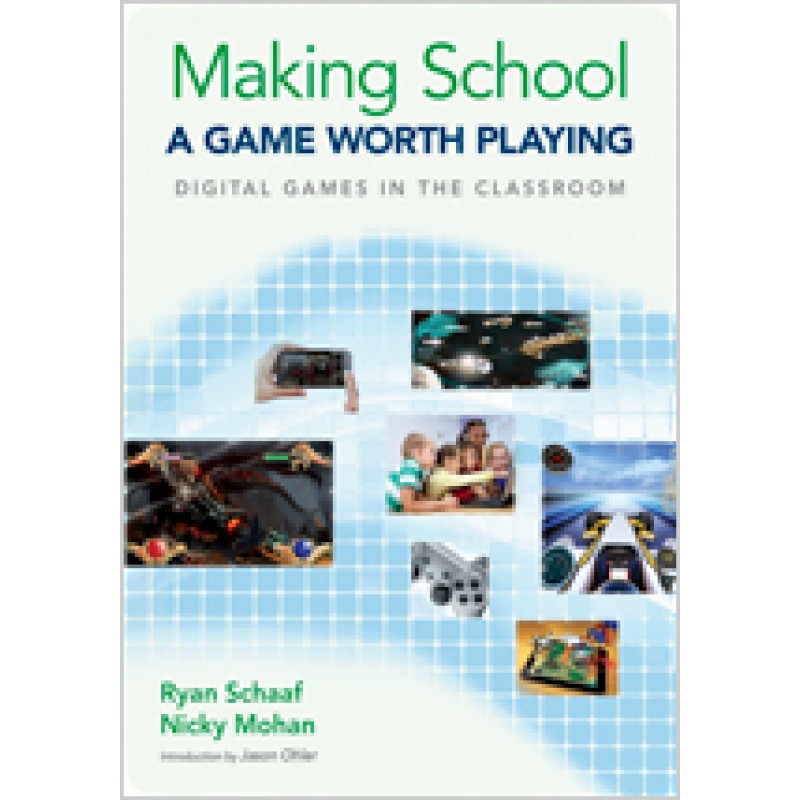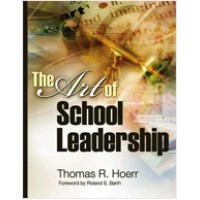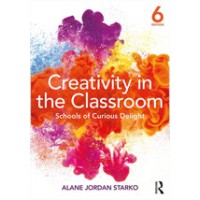Making School a Game Worth Playing: Digital Games in the Classroom, June/2014
| Author(s) | Ryan Schaaf, Nicky Mohan |
| ISBN10 | 1483359603 |
| ISBN13 | 9781483359601 |
| Format | Paperback |
| Pages | 160 |
| Year Publish | 2014 June |
Synopsis
Integrate game-based learning for 21st Century skills success!
Kids today live in a digitally connected world. Prepare your students for the new global economy by leveraging the technology they love and understand best. This straightforward, easy-to-follow guide helps you build essential 21st Century skills using digital video games. Ryan Schaaf and Nicky Mohan provide a cutting-edge, research-based approach - built around time-honored instructional practices. Step-by-step strategies help you easily find, evaluate, and integrate digital games into your existing lesson plans or completely redesign your classroom.
This practical guide helps teachers use well-designed game elements to:
- Promote meaningful student buy-in
- Create student-centered, collaborative learning spaces
- Teach and assess 21st Century Fluencies aligned to Common Core State Standards
- Address multiple intelligences using research-based strategies
Includes a detailed implementation outline, a revised Bloom’s Digital Taxonomy oriented to game content, summarized notes, and a reading list for engaged, adventure-filled learning!
“This book is easy to read, offers strategies that are easy to implement, and inspires a sense of urgency for educators to modify our teaching techniques to include more gaming in our classrooms. It is useful for teachers of all experience levels.”
—Carrie Trudden, Educational Technology Teacher
Howard County Public School System, Clarksville, MD
“Schaaf and Mohan present gamification as a powerful tool for engaging learners and for the development of 21st-century fluencies, organized in levels as in the games it describes. This book is rich in resources for finding, evaluating, implementing, and designing classroom games.”
—Danea A. Farley, Associate Professor and Coordinator of Technology
Notre Dame of MD University
About The Authors:
Ryan Schaaf is the Assistant Professor of Educational Technology at Notre Dame of Maryland University, and a faculty associate for the Johns Hopkins University School of Education Graduate Program, with over 15 years in the education field. Before higher education, Ryan was a 3rd-grade public school teacher, instructional leader, curriculum designer, and a technology integration specialist in Howard County, Maryland. In 2007, he was nominated for Howard county and Maryland Teacher of the Year.
In the past, Ryan has published several research articles in the New Horizons for Learning and theCanadian Journal of Action Research related to the use of digital games as an effective instructional strategy in the classroom.
Currently, he is overseeing and constructing peer-reviewed K-12 lesson units for the 21st Fluency Project, where he is also a featured contributor for the renowned Committed Sardine blog. He enjoys presenting sessions and keynotes about the potential for gaming in the classroom, the characteristics of 21st-century learning, and emerging technologies and trends in education.
Ryan is happily married to his beautiful wife Rachel and has two little boys that are his pride and joy. In his free time he enjoys fishing, exercising, gardening, and volunteering in local schools.
Nicky Mohan has more than 20 years experience in education, both as a classroom teacher and a school administrator. Her professional focus has been on developing and delivering practical professional development activities for teachers. She has also worked in the business sector as a learning and development manager, and was responsible for the design and delivery of professional development courses and resource materials. Nicky has worked in a number of countries and has extensive experience in delivering literacy and numeracy courses and workshops at the post secondary level. In her role as team leader at the University of Waikato, she designed and delivered courses and workshops based on research of best practice. These workshops focused on methodologies and instructional strategies that helped tutors and teachers effectively engage learners in the areas of applied literacy and numeracy.



